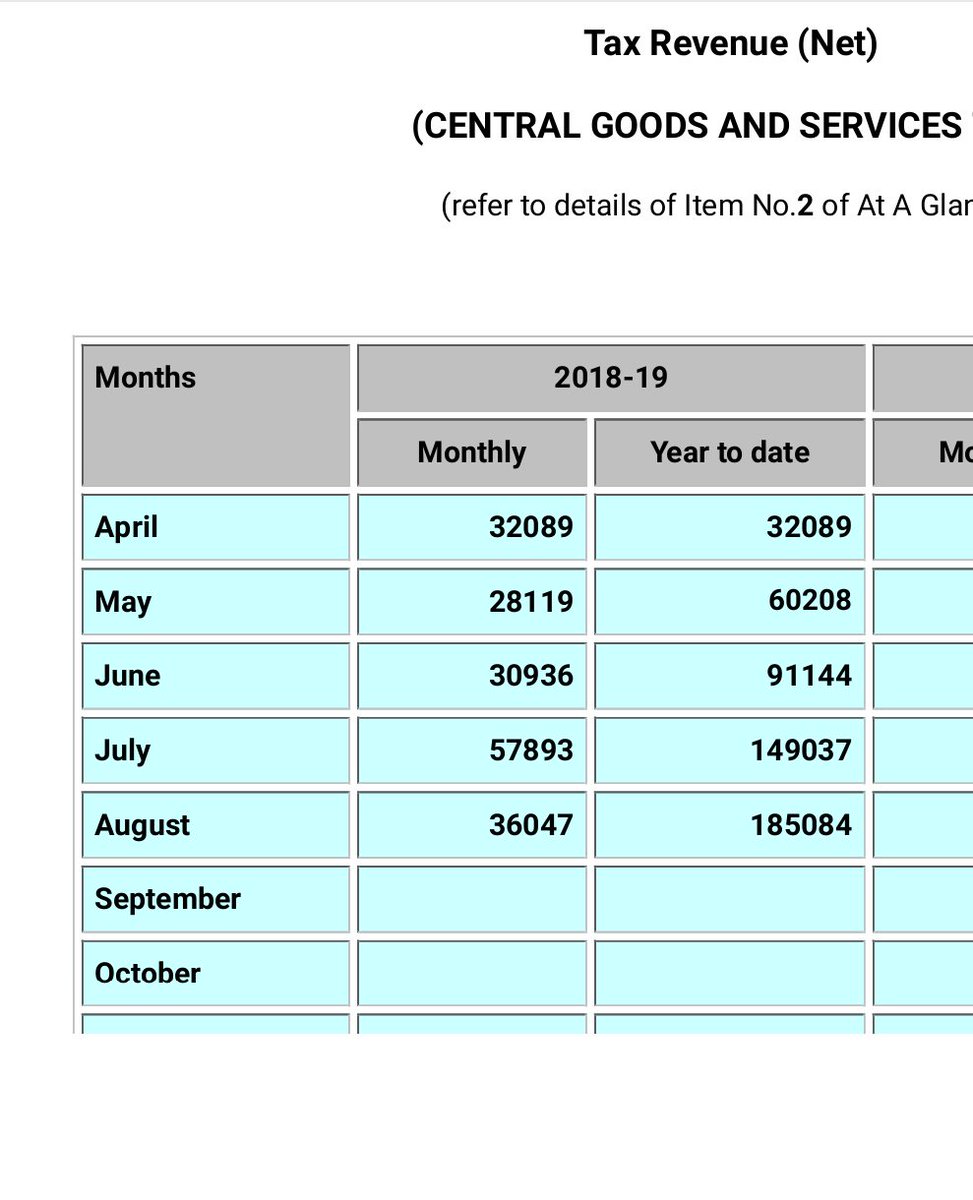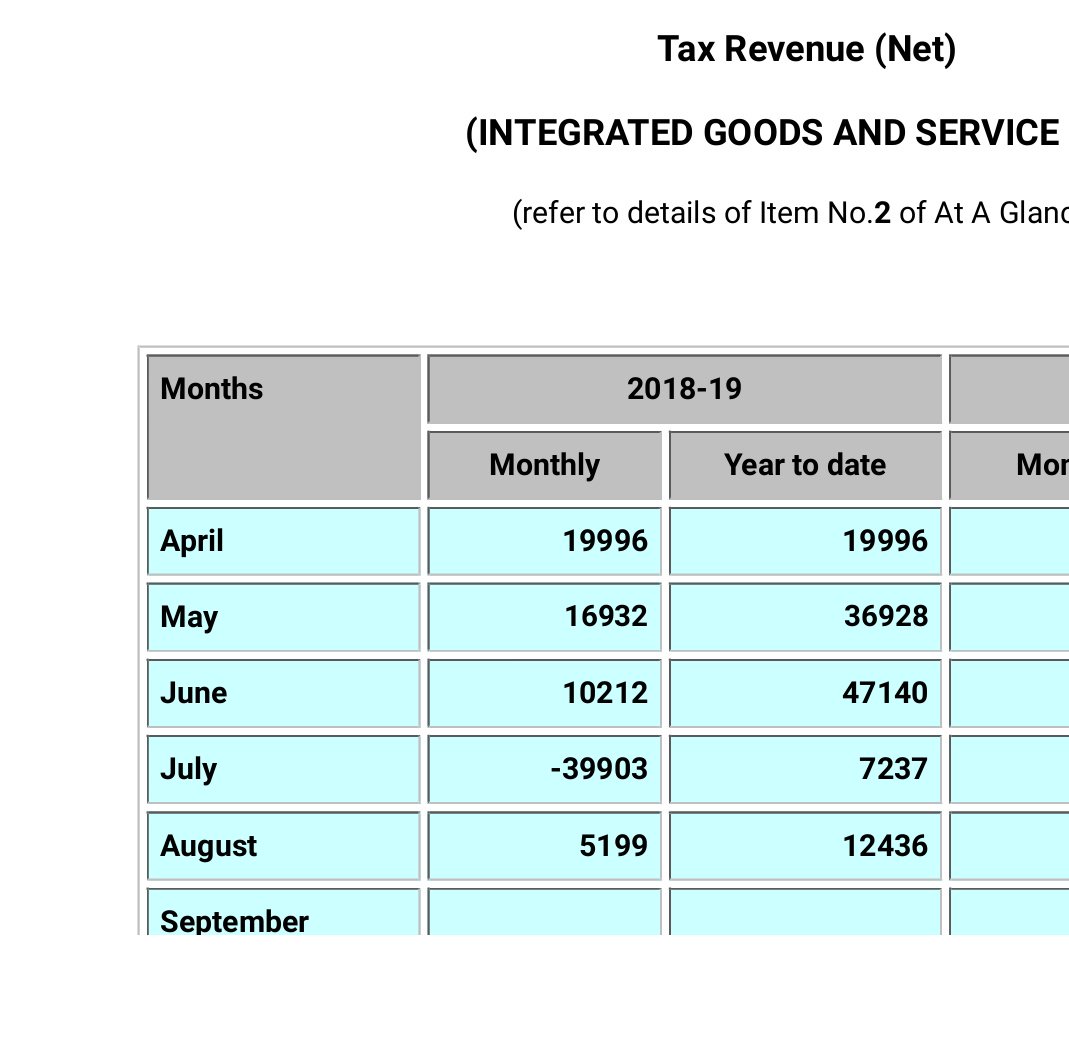To avoid dealing with this cesspool most hired "professionals" to do the dirty work. Just "pay" the professionals & they will "handle" everything, and everything at a "cost".
So when people say GST is costly they effin have no clue what "compliance" cost was during their rein of terror.
Form I
Payment Due
ANNEXURE I
ANNEXURE II
ANNEXURE III
ANNEXURE IV Input
ANNEXURE IV Export
ANNEXURE IA
ANNEXURE AV
CST (For interstate sale)
Now compare this to GST where the only real form you submit monthly is GSTR3B and GSTR1 quarterly.
If you have NILL return it is literally couple of click and DONE.
VAT = 96 (8 x 12)
GST = 16 (12 x 1 + 4)
In VAT you can get get ITC but there were a lot of if and but.
Read here to get a sense of the complexity
taxguru.in/goods-and-serv…
Now if I sell the garment out of state then I can't claim ITC and the person who purchased the goods won't get any ITC.
This is the reason why many would rather purchase from sellers within the state.
In case we were selling to a end consumer via e-Commerce then we lose the ITC.
Then there were states like West Bengal where you can't sell products to even an individual without a special form.
community.ebay.in/t5/Buying-on-e…
Now people found a way to bypass or took risk and sold anyway
Imagine that it was easier to sell a product from India to another country like USA than to a State within India.
And consuming states like West Bengal has benefited since unlike VAT, GST destination based tax where goods is consumed.
In VAT you can get ITC only for goods from a dealer of within your state and similarly CENVAT for central taxes i.e Service Tax and Excise etc.
In separate silos & there were no ITC possible but real world doesn't work that way.
Similarly a software company can't claim ITC for furniture / consumables / computers etc
And what happens where there isn't ITC. Under-reporting.
Hence VAT was inflationary as compared to GST.
And this is my reaction when I hear people say compliance cost has increased in GST.
Yet so see how GST for the *majority* of business (not the outliers) is WORSE than the regime that was before for an honest tax payer.
Let me try and ask those questions and answer them
- Threshold (Revenue after which is required to register)
- Complexity of rules
- Compliance complexity
- Compliance cost
- Interface with tax machinery
--------------------
In TNVAT the threshold was 5 lakhs and at 10 lakhs you had to collect taxes
In GST it was Rs 20 lakh now it is increased 40 lakhs
---------------------------
Any tax regime will be complex when administering a vast country like India, but if you compare just the sheer complexity of VAT vs GST
GST is far more simpler than VAT
Take the example of ITC
--------------------------
If you are a small retailer having revenue less than 1.5 crore you have to file 12 monthly and 4 quarterly return other forms are prefilled just need to review them.
compare this to TNVAT
On such case was creating a new slab for Gold and gems
financialexpress.com/market/commodi…
indianexpress.com/article/busine…
and the compliance (to the best of my knowledge) is only a single form filed annually.
Unfortunately many are unaware of simplicity and unscrupulous "consultants" pray on the gullible to make a quick buck but this isn't the flaw of GST but the greed of few.
------------------------
There is no reason the compliance cost of GST should be be more than in VAT. As mentioned earlier our compliance cost actually reduced since we get ITC of the compliance service.
And spreading the myth that GST is more complex in these poorly researched article after article on GST only helps fill pockets of these.
gstsuvidhakendra.org/wp-content/upl…
-----------------------------
This was the bane of the existence of honest businessmen, even if you were 100% compliant and honest there will be certain "demands" you can't avoid.
Luckily GST was introduced and I got GST registration sitting in my home in 3 days and with ZERO "other" costs.
Everything is online, the entire process is audited online so if some officer holds the registration process for "special" reasons, it is know in the entire system.
All notice and it's reply is only online
The system is moving to a direction which rewards honesty.







